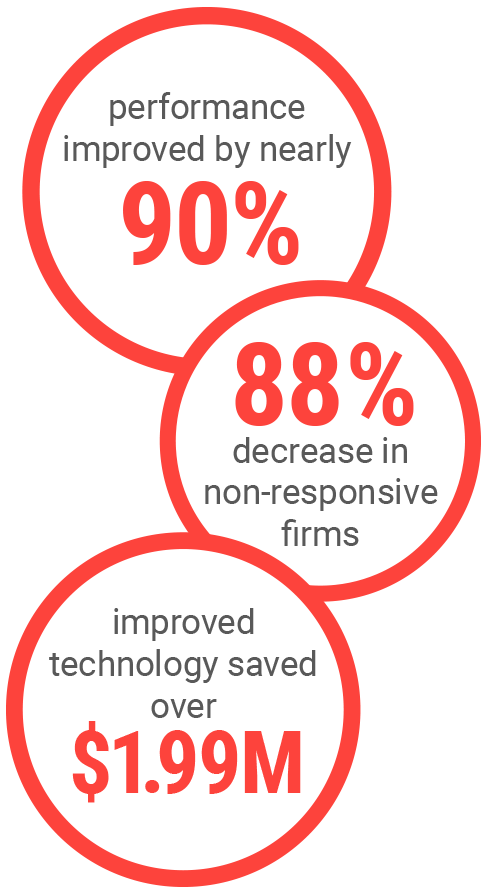The Journey from EHB to ProSAMS
Background:
In 1989, REI Systems secured its first contract with NASA to develop the Electronic Handbooks (EHB) for the Small Business Innovation Research (SBIR) and Small Business Technology Transfer (STTR) program, marking a significant transition from paper-based to electronic submissions. This shift allowed small businesses to submit their innovations to NASA more easily and efficiently.
Over the past 30 years, the EHB has been a successful partnership, yet like many government applications, it needed modernization. Thus, the Platform Engineering and Technology Support Services (PETS) project was launched in June 2022, targeting completion by October 2024.
The PETS project aims to modernize and create a flexible, cost-efficient system that adapts to the evolving needs of users, using a cloud-based platform to enhance participation from small businesses and research institutions in federal research and development activities.

REI won the PETS contract thanks to its proven support for NASA’s mission and its track record of delivering innovative software solutions to the federal government. These solutions include data analytics, DevSecOps, agile practices, and a strong emphasis on customer experience. Notably, REI’s relationship with NASA began 33 years ago, marking NASA as its first customer.
Challenge:
The SBIR and STTR programs, aimed at helping small businesses develop new technologies and partner with research institutions to market innovations, faced challenges with accessibility, efficiency, and outdated technology. The submission process in EHB for the SBIR program was often disjointed, and the language used was not clear, understandable, or current, which detracted from the user experience, especially for those new to the SBIR process.
NASA sought to update its technology platform to be more flexible, scalable, and streamlined, using open-source for cost efficiency. The focus was on a customer-first approach, improving access for businesses to encourage innovation and teamwork. This initiative aims to facilitate the submission of new ideas, advancing NASA’s missions and stimulating economic growth, as the legacy systems were inadequate for these goals.
To achieve this, REI focused on redesigning processes with the user experience at the forefront. We collaborated with firm users to develop intuitive navigation, modernized the language to align with current software applications, and enhanced search and filter capabilities to speed
up user access to necessary information. REI anticipated these improvements would foster greater trust between users and the EHB, ultimately benefiting long-term user engagement
and satisfaction.
Solution:
The Proposal Submission and Awards Management System (ProSAMS) became the cornerstone of the PETS project, designed to meet the specific requirements. REI:
- Introduced Elastic technology that scales and adapts to the program’s needs.
- Added self-service features for users to access data on their own.
- Reduced developer dependence to streamline program updates more efficiently.
- Implemented its CX framework to address and eliminate top user pain points and streamline the user application process.
- Improved user experience to make system interactions more intuitive.
Behind the scenes, REI implemented a serverless architecture, using React for the front end
and Lambda functions for the back end. This approach sped up development, trimmed costs, and improved data management, showcasing REI’s commitment to agile methods and open-source technology.
Customer-First Mindset:

End users were consulted before, during, and after development, and the product was deployed in small increments with minimum, highest-value features. This approach encouraged early adoption and allowed for adjustments based on real-world feedback, ensuring the product continually evolves to better meet the changing needs of customers.
REI was key in realizing the project’s vision. The team conducted extensive user research, applied human-centered design principles, and adopted a customer-first mindset focused on continuous improvement. The development of ProSAMS underscored a commitment to scalable, secure, and user-friendly design, using advanced cloud technologies for a solution that meets NASA’s needs effectively.
Impact:
The PETS project, even in its initial phases, is set to have a significant impact on NASA’s operations and contribute to economic growth. In Phase I of the PETS project, NASA observed several significant impacts:
- Performance Improvement: Comparisons between EHB and ProSAMS revealed that average performance times improved by nearly 90%.
- Reduction in Manual Submissions: By eliminating manual submissions, there was an 88% decrease in non-responsive firm proposals, which are proposals that did not submit or complete a compliant proposal, from 2022 to 2023.
- Cost Savings: Improved technology infrastructure, systems operations, and maintenance saved over $1.99 million.
REI’s work is creating a streamlined, accessible path for small businesses and researchers to contribute innovations. A key objective is ensuring historical data is consistently available and accessible, ultimately becoming self-service. This initiative aims to democratize technology development and commercialization, fostering groundbreaking success stories. As the project progresses, its impact on major
NASA missions and its role in driving economic growth through technology commercialization will become increasingly evident.
Copyright © 2024 REI Systems. All rights reserved.







